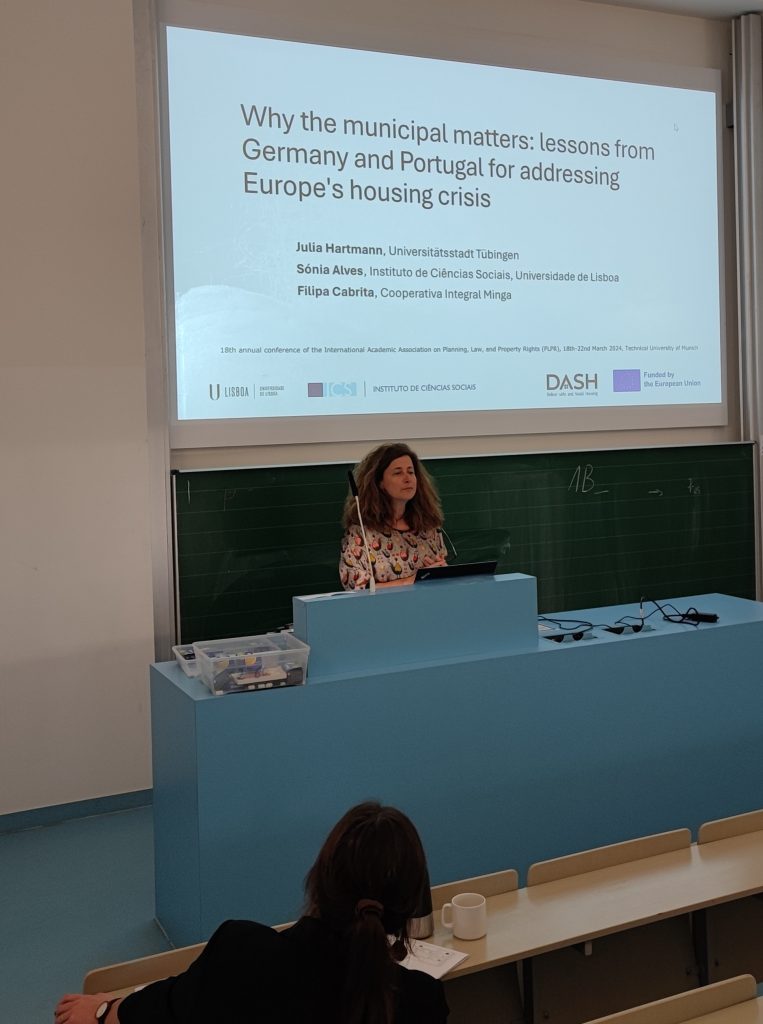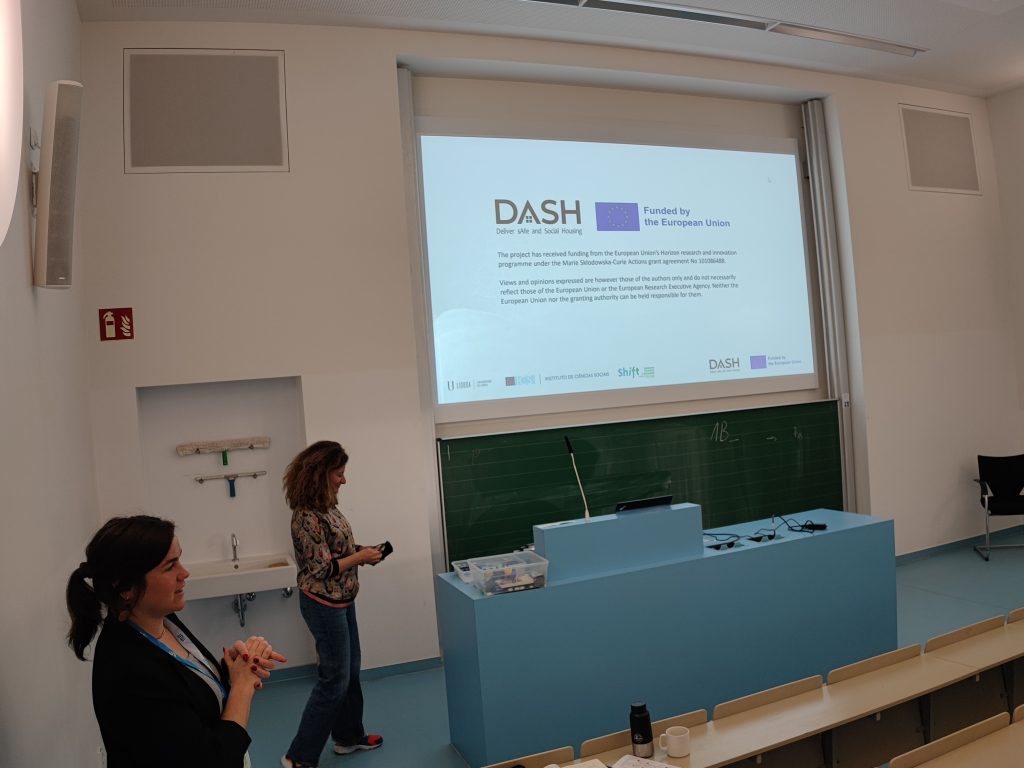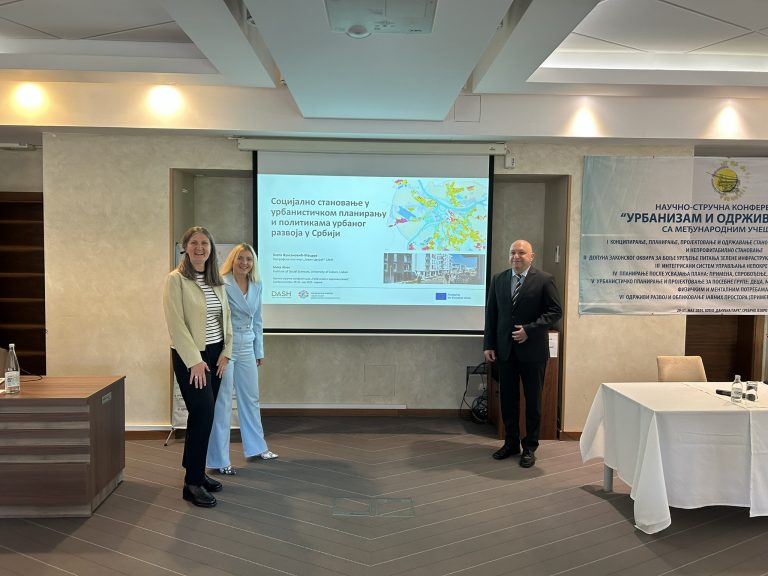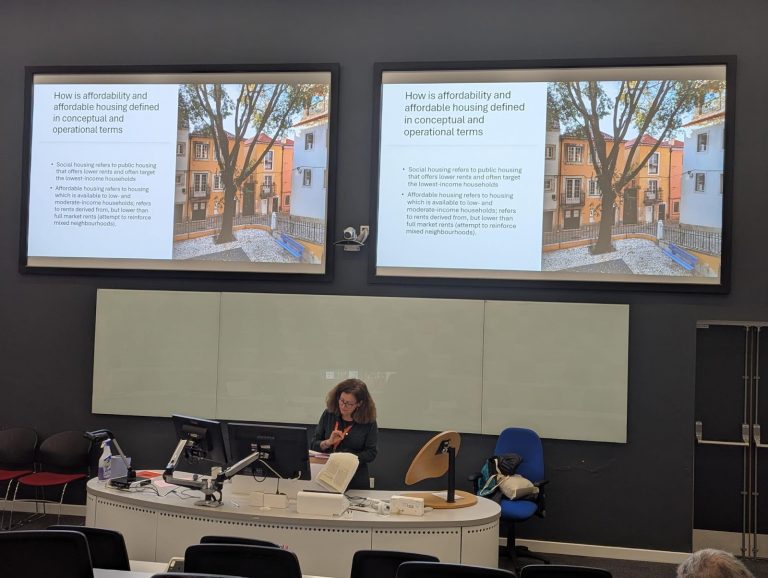By Sónia Alves and Julia Hartman
On 21 March 2024, Sónia Alves, on behalf of Julia Hartman and Filipa Cabrita, presented the preliminary results of the paper “Why the municipal matters: lessons from Germany and Portugal for addressing Europe’s housing crisis” at the 18th Annual International Conference of the Planning, Law, and Property Rights Association.


Credits for images: DASH project 2024
The conference, hosted by the Chair of Land Management at the Technical University of Munich, brought together experts from diverse countries and fields of research who covered a wide range of topics related to planning law, planning theory and land policies and instruments (including, for example, developer obligations and value capture). By using different lenses, such as that of institutional and legal analysis, the participants described and interpreted the strategies that public actors (at the national and local level) have used to tackle the multifaceted challenges related to urban planning, including those related to the accessibility, affordability, and quality of housing. Flexibility versus certainty, and the use of formal instruments and informal practices, were some of the topics debated in the conference.
To learn more about the conference, read the Book of Abstracts.
The paper presented by J. Hartman, S. Alves and F. Cabrita, inspired by theory of historical institutionalism, governance and planning for affordable housing, highlighted the importance of active municipal land management, active resident involvement and collective forms of ownership in creating long-term solutions for affordable housing. The comparison of the two cases of Évora and Tübingen suggests the necessity of certain local preconditions, such as particular visions, beliefs and actors.
Among other things, our paper raised the following questions: Why are some cities more receptive toward progressive housing policies than others? How do different levels of openness toward the participation of not-for-profit actors influence the type of housing and neighbourhoods that are produced?
Over the next months we will try to move these debates forward. For now, take a look at our research questions, initial assumptions and case studies – PPT.

